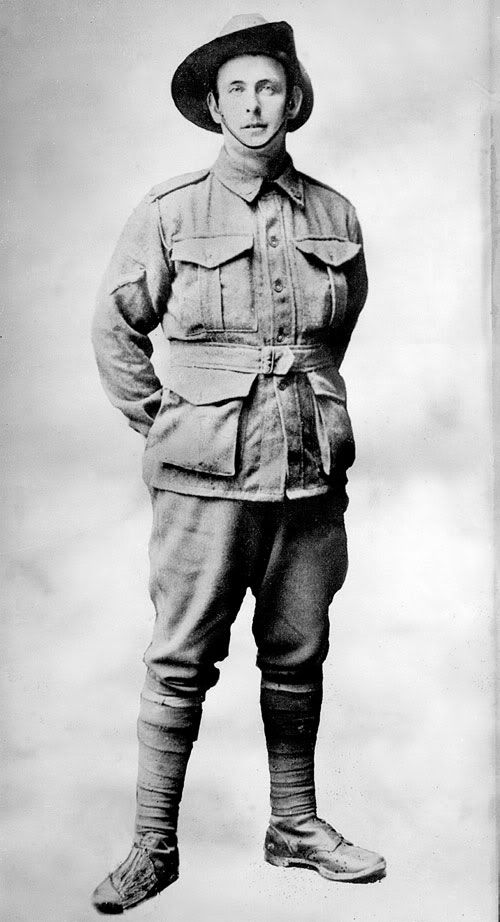- Joined
- Oct 11, 2010
- Messages
- 12,712
- Reaction score
- 7,467
- Age
- 61
Lewis McGee (13 May 1888 – 12 October 1917) was an Australian recipient of the Victoria Cross, As a sergeant in the Australian Imperial Force, McGee was awarded the Victoria Cross for his actions in the Battle of Broodseinde—part of the Passchendaele offensive—on 4 October 1917. As his platoon came under heavy machine gun fire from a German pillbox, McGee rushed alone across open ground towards the emplacement. Armed solely with a revolver, he shot the gunners and captured the garrison. He then organised a bombing party, and led the group in the seizure of a second machine gun post.-

As a result of his actions at Broodseinde, McGee was awarded the Victoria Cross.- However, he never saw the announcement of the award...
On 12 October 1917—eight days after McGee's Victoria Cross action—the 40th Battalion returned to the frontline, in an attempt to exploit the success of the previous week. The battlefield was drenched in rain, turning the ground into a quagmire that was additionally dominated by several German pillboxes. McGee—who had been appointed acting company sergeant major of B Company that morning—led his unit into the attack. As the men of the company advanced forward, a machine gun began firing upon them from the front, before a second opened up on their flank. Men ran to take cover in shellholes as the German fire inflicted several casualties. McGee, however, made a rush towards the guns in an apparent effort to silence them. As he ran towards the pillbox, a bullet struck him in the head, killing him instantly.-
An extract from “The London Gazette"†No. 30400, dated 23rd November 1917, records the citation for the posthumous award of the Victoria Cross to Sergeant McGee for his actions on 4th October 1917:

As a result of his actions at Broodseinde, McGee was awarded the Victoria Cross.- However, he never saw the announcement of the award...
On 12 October 1917—eight days after McGee's Victoria Cross action—the 40th Battalion returned to the frontline, in an attempt to exploit the success of the previous week. The battlefield was drenched in rain, turning the ground into a quagmire that was additionally dominated by several German pillboxes. McGee—who had been appointed acting company sergeant major of B Company that morning—led his unit into the attack. As the men of the company advanced forward, a machine gun began firing upon them from the front, before a second opened up on their flank. Men ran to take cover in shellholes as the German fire inflicted several casualties. McGee, however, made a rush towards the guns in an apparent effort to silence them. As he ran towards the pillbox, a bullet struck him in the head, killing him instantly.-
An extract from “The London Gazette"†No. 30400, dated 23rd November 1917, records the citation for the posthumous award of the Victoria Cross to Sergeant McGee for his actions on 4th October 1917:
“For most conspicuous bravery when, in the advance to the final objective, Serjt. McGee led his platoon with great dash and bravery, though strongly opposed, and under heavy shell fire. His platoon was suffering severely and the advance of the Company was stopped by machine gun fire from a 'Pill-box' post. Single-handed Serjt. McGee rushed the post armed only with a revolver. He shot some of the crew and captured the rest, and thus enabled the advance to proceed. He re-organised the remnants of his platoon and was foremost in the remainder of the advance, and during consolidation of the position he did splendid work. This Non-commissioned Officer's coolness and bravery were conspicuous and contributed largely to the success of the Company's operations. Serjt. McGee was subsequently killed in action.â€





